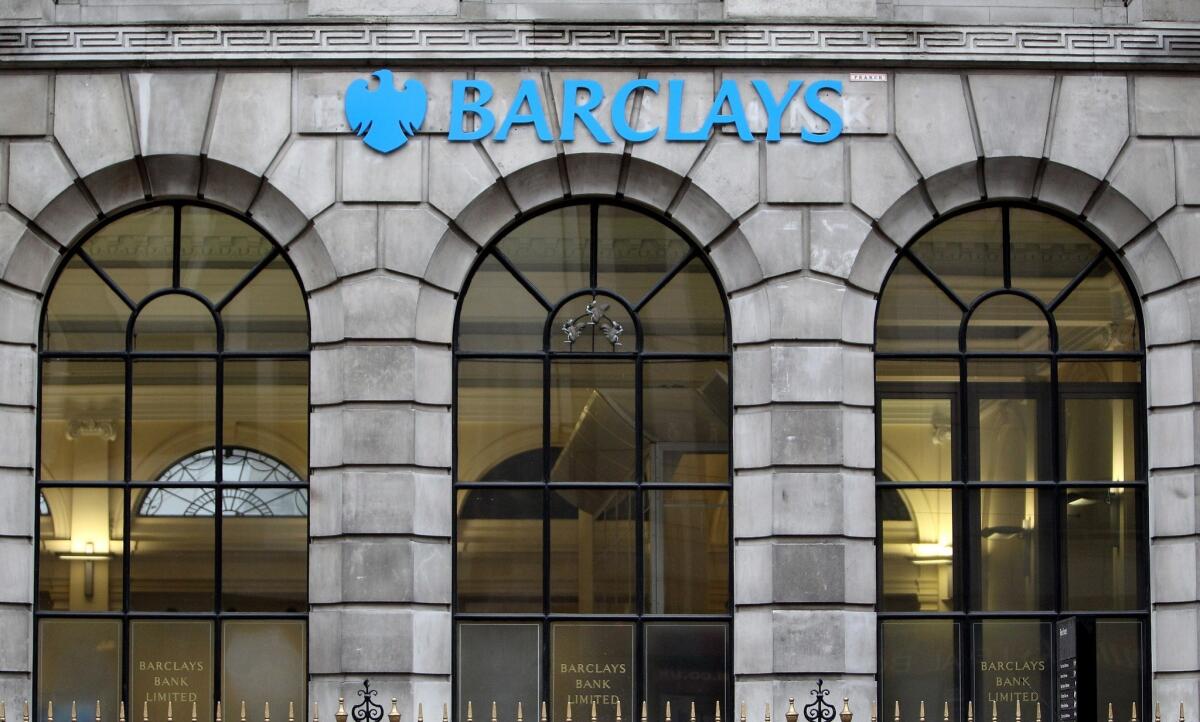Britain charges three ex-Barclays employees in interest-rate probe

- Share via
British authorities on Monday charged three former Barclays Bank employees with fraud for allegedly rigging a key interest rate in the run-up to the financial crisis.
The country’s Serious Fraud Office said it filed criminal charges against Peter Charles Johnson, Jonathan James Matthew and Stylianos Contogoulas in connection with the manipulation of the London interbank offered rate, known as Libor.
The office, which investigates and prosecutes complex fraud cases, said the violations took place between June 2005 and August 2007.
PHOTOS: Federal Reserve chairs through the years
In 2012, Barclays agreed to pay more than $450 million to U.S. and British authorities to settle investigations into manipulation of the benchmark interest rate.
A Barclay’s spokeswoman declined to comment Monday.
Authorities on both sides of the Atlantic have been investigating the rate-fixing scandal since 2012. Libor is an average of certain interest rates offered by major banks and helps determine borrowing costs for consumers and corporations.
U.S. and British officials said banks manipulated their rate submissions to the group that calculates Libor, partly in an effort to make the banks appear healthier during the financial crisis.
Swiss banking giant UBS agreed in 2012 to pay a $1.5-billion fine to U.S. and European authorities to settle investigations into its role in the rate-rigging.
The three former Barclays employees charged Monday join three others charged in the ongoing British investigation
In June, the Serious Fraud Office charged Tom Alexander William Hayes, a former trader at UBS and Citigroup, with conspiracy to defraud. And in July, the office charged Terry John Farr and James Andrew Gilmour, former brokers at RP Martin Holdings, a London brokerage firm, with conspiracy to defraud.
Those three have pleaded not guilty.
More to Read
Inside the business of entertainment
The Wide Shot brings you news, analysis and insights on everything from streaming wars to production — and what it all means for the future.
You may occasionally receive promotional content from the Los Angeles Times.











